Black student: 'Let apartheid go'
- Published
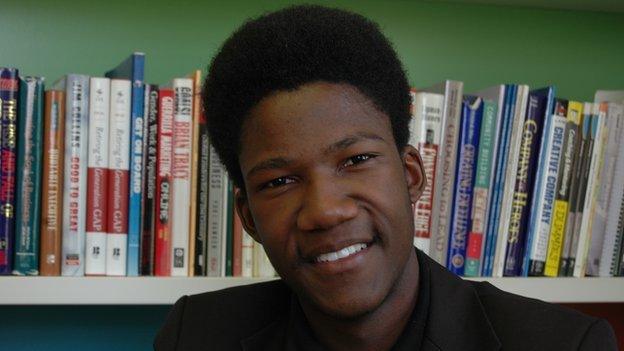
Goodman Lepota, 18, is one of the first generation to have grown up in a post-apartheid South Africa.
In April, the country marked the 18th anniversary of the first multi-racial elections that heralded the birth of the "rainbow nation".
Raised by his mother in Ivory Park, a small township outside Johannesburg, Mr Lepota is now studying at the prestigious African Leadership Academy - which enlists Africa's top students.
He tells the BBC's Pumza Fihlani that some young South Africans, or "born frees", are using apartheid as an excuse for underachieving.
Goodman Lepota:
Race is not an issue for me, apartheid does not mean anything to me.
I think there are far more important things to worry about than what apartheid did.
If we focus on the notion that "whites are bad and we as black people need to be protected from them", we will never move on as a country.
Young black South Africans need to strive for bigger things, we live in a global community, we should be more worried about how we will compete in the global arena than the colour of our skin.
Apartheid fell almost two decades ago but a lot of black people still have that apartheid mentality of seeing themselves as inferior.
I think our leaders are partly to blame for that continued mindset after so many years of democracy.
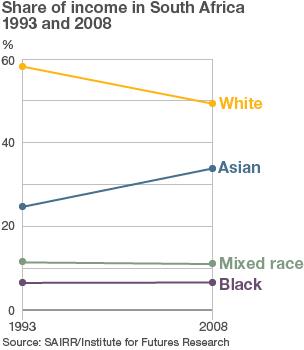
People like [former] ANC Youth League President Julius Malema, who is so popular with the poor, campaign on the basis of race and make radical statements about whites and that is very dangerous for the future of the country.
I know that the struggle happened, but it is 18 years down the line now - it is time to move on.
'No school fees'
I've never lived in a posh suburb, I've lived all my life in a small house in a township.
I would walk to school like millions of black township children do across the country.
There were times when my mother would not be able to pay my fees in primary school which were less than $1 (£0.60) per month, so I know what it is like to struggle and be underprivileged.
I'm not a product of Black Economic Empowerment (BEE), I'm not a product of affirmative action, I've worked really hard to be where I am.
I have proven that you don't need pro-black policies to make something of your life.
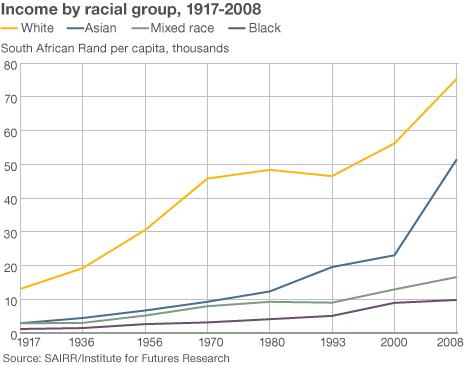
I believe we should rely more on hard work than these government policies.
I think these things are further dividing the country and are not helping us develop in the end.
I think too many South Africans hide behind apartheid and use that as an excuse to not try and achieve things in their own lives.
I can understand the older generation having reservations about white people and still being stuck in the past because they lived through that era, but people my age have no excuse.
We didn't experience that and we cannot keep using that as a crutch to sit back and wait for hand-outs.
Today's youth feel like they are owed something by the government or that someone will come along and save them.
'Sheltered from stereotypes'
My mother raised me to believe in myself and to work hard.
I think that she sheltered me from having certain stereotypes about race.
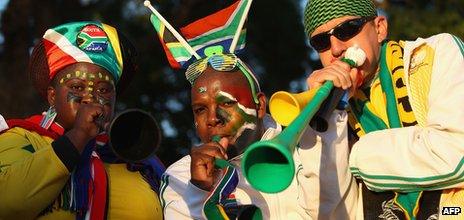
The 2010 World Cup gave South Africans a sense of unity
I am a member of South Africa's national debate team and have competed in the World Schools Debating Championships; I was the first black person to be on the South Africa team and the first one from a township school.
There have been situations while competing when I would be the only black person there, but I've never let that determine how I see myself.
I've never felt inferior because I'm black nor did I think my competitors were superior because they are white.
Colour has never mattered to me.
In my view the country is divided into three: The poor, the black elite and white people.
The black elite are all the people who made money when apartheid fell and are billionaires today.
These are the people who signed deals with international companies and gave them access into the country and its resources, the same people who continue to benefit from policies such as Black Economic Empowerment.
It is this "middle man" that is inciting violence and telling poor black South Africans to rise up against white people - it is all a political game for them and that is what today's youth need to wake up to.
South Africa's challenge in my eyes is not racism, the challenge is how to bridge the gap between the few black people who have benefited from the fall of apartheid and are continuing to make millions of money through BEE and the millions of people that are still very poor in spite of democracy.
We live in a capitalist society, the challenge for us as a country is more about class than race now.
We should not be focusing on white and black issues, we should be focusing on how to make our country a strong player in the global economic space - that is what's important not apartheid.
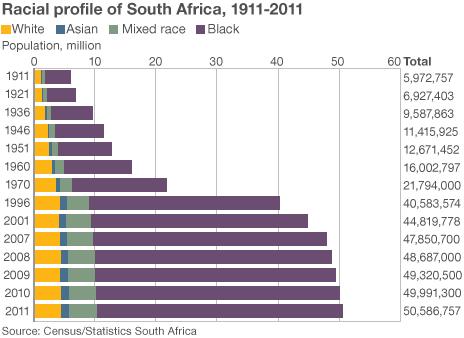
- Published2 February 2011
- Published8 June 2013
- Published9 July 2024
